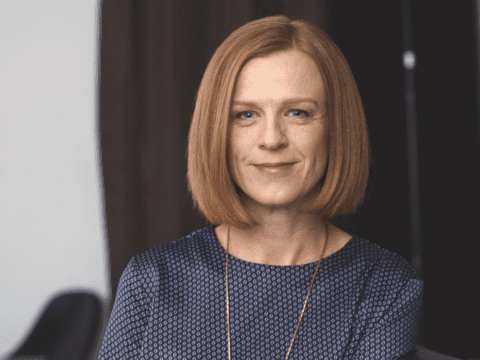I keep hearing these days that I’m supposed to get rid of things that don’t “spark joy.”
That may be appropriate for the old sweater in my closet, but I worry when the same ethos is applied to the issue of institutional investments — those belonging to churches, foundations, pension funds and other organizations.
You may unsubscribe from any of our newsletters at any time.
When most people think of the ethics of investment, they immediately ask what to avoid. What companies or sectors should we divest from? This is an appealing approach because it removes responsibility from our lives, or at least our portfolios. We can’t be held responsible for what’s not in our portfolio. It becomes someone else’s problem.
But Marie Kondo-ing our portfolios just makes us good at avoiding risks — whether they’re financial or ethical — and not as good at taking risks. Real social and environmental change is never comfortable and safe, something Canadian religious institutions have long understood as leaders in the responsible investment movement. Starting in the 1970s, churches and religious communities took on the apartheid regime in South Africa, Indigenous rights in Canada and environmental sustainability worldwide by using their voice as shareholders to exert influence on corporate decisions.
The initial vehicle of church investor activism in Canada, the Taskforce on the Churches and Corporate Responsibility, disbanded in the late 1990s. But the determined, strategic vision of religious investors never went away. In fact, today it is even stronger, as newcomers to the movement — pension funds, foundations, universities, Indigenous trusts and others — engage in active campaigns to promote a sustainable, inclusive and productive economy.
More on Broadview: A ethical person’s guide to investing
Responsible investors still choose to screen out some types of investments, for both ethical and financial reasons. But that’s not the only tool in their tool box. Recently, institutions like the Pension Plan of The United Church of Canada, for example, were unwilling to take vague assurances from TransCanada (now TC Energy) that it would respect Indigenous rights in its operations without proof that the company has changed the way its decisions actually get made, bringing the issue to a vote at the company’s annual meeting this year. The pension plan is also working with Dollarama Inc. and Tim Hortons to create systems to identify forced labour in their supply chains rather than accept the weak reassurances in those company’s public reports. And the Sisters of Mercy of Newfoundland are pressing one of the world’s biggest companies, Amazon.com, to take responsibility for the shoddy treatment of workers in its operations.
This kind of advocacy is harder than walking away. Holding shares in a company that is engaged in problematic activity opens investors up to risk, financial and ethical. But the question to ask is whether being absent as active owners opens up those affected by the corporation’s activities to even greater risk. Active ownership isn’t just managing your own financial risk, it’s trying to change the situations that create that risk.
What religious investors, and others like them, bring to the table is an ethos of action, not avoidance. They grapple with the imperfect world we live in and use their position as shareholders to advocate for change. They don’t settle for easy answers, and instead strive for real, not just symbolic, victories.
That’s what really sparks joy for me.
This column first appeared in the December 2019 issue of Broadview with the title “At the table.”
Broadview is an award-winning progressive Christian magazine, featuring stories about spirituality, justice and ethical living. For more of our content, subscribe to the magazine today.














This article on strategic investment leaves me with a sense of hope for the future.
This is an interesting argument, but personally, I simply find it unacceptable for me to have a vested interest in the success of businesses that are causing harm and engaging in unethical behaviour. The decision not to make such investments does not mean giving up on bringing about change; it means recognizing that it would have a much greater impact to affect business’s behaviour through regulatory change than to attempt incremental shareholder-driven changes one business at a time. In other words, changing government would be a much more efficient approach.
This approach has the added benefits of allowing folks without disposable investment income to participate, and of engaging the possibility not just of slightly more ethical business practices, but of a radical reorganization of society that would bring us much closer to realizing the kin-dom.
If a large group such as the United Church of Canada purchases just one share — to get to the annual meeting and make a presentation — this argument would hold merit. Most of us individual investors, however, cannot make that attempt; and holding a mutual fund with unacceptable securities therein removes us even further from influence.
As another has posted: it’s not necessary to try to clean up the dirty players with our pension monies when alternative clean players exist who deserve our investments instead.